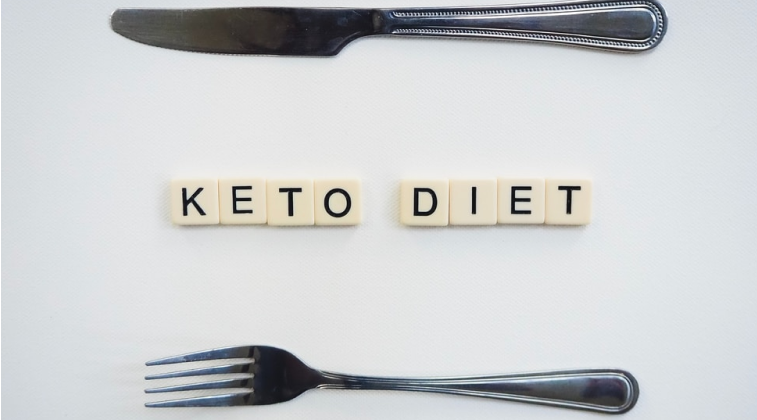
“What is the best diet for humans?” Is the question that was posed by DayTwo’s co-founding scientist, Eran Segal, over ten years ago, right before undertaking the world’s largest study of the human gut microbiome with over 800 people. Now, as the start of a new year dawns, we’re learning even more about the benefits of specific diets on our health and the good news is that overall the consensus is growing—for the fourth year in a row, US News & World Report has ranked the Mediterranean diet the best overall diet for being nutritionally balanced, and easy to follow. However, diets that are highly restrictive and much harder to follow, such as Whole30 and the Keto diet, were ranked lowest. (Keto diets force the body into a metabolic state called ketosis through a combination of high-fats, adequate-protein and low-carbohydrates). These diets were even called out for being nutritionally incomplete and nearly impossible to follow long term.
Certainly, one thing the panel of health and nutrition experts including registered dietitians agreed upon is that diets which are easy to follow are often the best for you simply due to the pragmatism that you’re able to stick to them. Plus, newer diets such as Noom for weight loss and Autoimmune Protocol (AIP) Diet for reducing inflammation were ranked and even applauded for their behavior-change approach. Which perhaps reminds us that not all diets are created equal because they are not all designed to serve the same goals. Take Keto which is reported to have been around for over one hundred years and used to treat children with severe epilepsy while the Mediterranean diet was ranked high by US News & World Report for diabetes.
But why do most conventional diets not work for most people? And can our knowledge of diets really not have changed in over one hundred years? Professor Eran Segal would argue that it most definitely has. His groundbreaking study found a powerful insight that people respond differently to the same foods. By recording over 2 million individual blood glucose responses to meals, his team of scientists and computational biologists found that while one person may eat a banana and have absolutely no reaction in terms of a rise in blood glucose, another may have a much more dramatic rise that could cause significant health consequences. This means that diet indexes like that of US News & World Report, while directionally sound, are lacking in sophistication and empirical data. Just recently, The American Diabetes Association’s Standards of Medical Care in Diabetes for 2021 stated that no single pattern of eating works for everyone.
The DayTwo program, founded on this insight and brought to market through employers and payers, is designed to serve diverse populations affected by metabolic disease (prediabetes, diabetes, clinical obesity and fatty liver disease). While it follows many of the best practices outlined in the latest report such as behavioral coaching, the groundbreaking difference is that it is personalized to each individual, which is a complete game changer in the field of precision medicine. DayTwo’s proprietary machine learning-based blood sugar prediction engine has a unique scoring system for over 1 million foods, grocery and restaurant items and a digital app to track progress. So how does it work? Members provide a gut microbiome sample and as a reward for their efforts, they’ll receive a personalized Food Prescription™ and a dedicated dietitian who provides behavioral and nutrition support along the way. To create these individual Food Prescriptions™, DayTwo takes gut microbiome data and other clinical measures and feeds them into the prediction engine. This enables members to eat the foods they love while keeping blood glucose in the healthy range.
This incredible breakthrough has revolutionized metabolic disease interventions since it’s the mismatch of food to person that is the primary cause of these conditions. DayTwo’s proprietary science and technology has finally unlocked that knowledge. While many diabetes interventions require highly restrictive diets, the DayTwo solution allows members to enjoy the foods they love. In fact, members are likely to find some surprises as they unpick old habits and relearn their relationship with specific foods and meal combinations. For example, a cup of corn may trigger a high blood glucose response in some people based on their unique biology but reducing the portion to a half-cup, or adding a portion of roast chicken could level off the blood sugar keeping it within a healthy range. Conversely, for some people it may not matter if they eat a full cup or a half-cup of ice cream, as the impact on energy, mood and blood sugar levels may be about the same. These granular insights can help each individual find a precision nutrition plan that works just for them. For many—this can even lead to a reduction or elimination of diabetes medicines—and a path to metabolic disease remission.
The future of metabolic disease intervention is being determined right now. Innovative employers and payers are choosing DayTwo’s solution alongside or as a standalone among existing benefits and finding a sustainable solution that drives meaningful ROI. Do you want to learn more about how precision nutrition can change the course of metabolic disease for your employees and members? Simply email us at daytwosolutions@daytwo.com.


